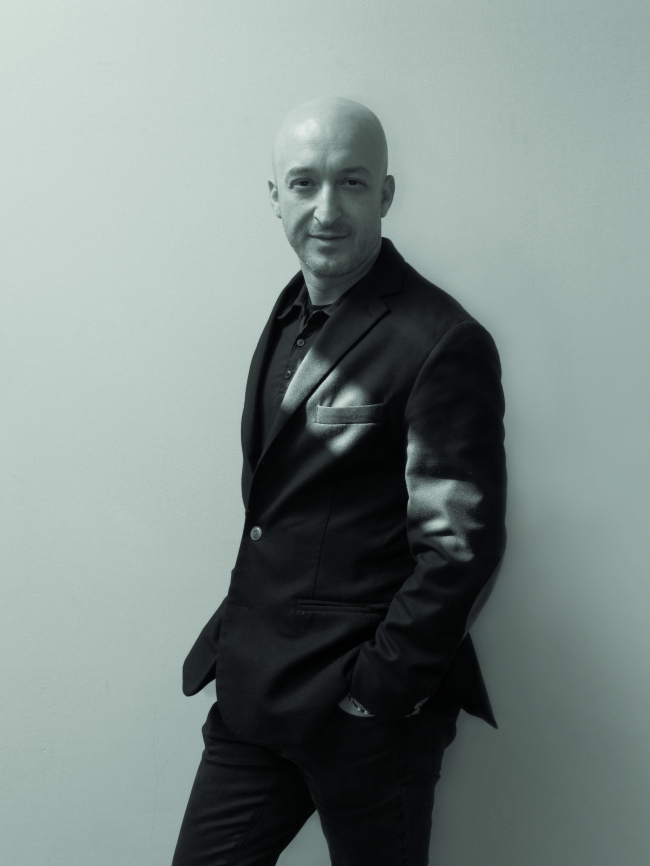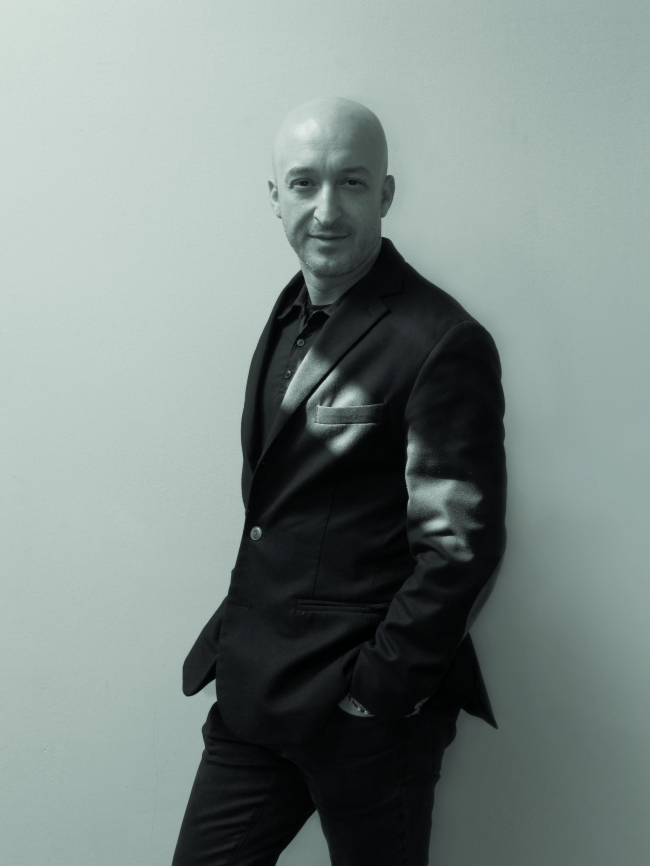|
Published on Archi.ru (https://archi.ru) |
|
| 26.11.2013 | |
|
Roman Sorokin: "We want this to be a place where our children and grandchildren will work" |
|
|
Alla Pavlikova |
|
| Studio: | |
| Homeland Group | |
|
Interview with the president of Homeland Group Roman Sorokin.  Roman Sorokin, president of Homeland Group. Photo courtesy by Homeland Group - Please tell us about your first steps in the profession. How did you start? Roman Sorokin:
- I got exposed to architecture way back in the Soviet time in Kishenev where I studied at the architectural department of the local polytechnic institute. After I graduated from high school I was choosing between medicine, theater directing, and architecture. So, ultimately, I opted for the latter. I did not have the time to graduate, however, because in the nineties my family and me emigrated to Israel. So I continued my education there, although I first switched to economics, and then picked up theater directing again. I tried my hand in various fields of endeavor but at that moment I decided to start a business of my own, and, oddly enough, initially it did not have anything to do with architecture - rather, with designing the product. What we started with was doing the design of a European perfume. Our next venture was a private club "Fetish" in Tel Aviv. That was way back in 1997. I took a most active part in creating the interior design and the atmosphere of that place. That was virtually my first architectural project. And, with all due modesty, I can say that this project was quite a success. At first the city people met the idea of creating such a club with apprehension but half a year later already this club became the city's hottest place, and all the Tel Aviv Bohemia were standing in line to get in. Perhaps it was this too powerful a start and the incredible success of the project that became the reason for the fact that after a while this club got burned down. We had to rebuild this building literally from scratch. This was my second architectural experience, quite different from the first one, but, the way I see it, just as successful.
Yet another while later we decided to open a restaurant in that city. And I somehow got the idea to design it in art-nouveau style. At this point I will have to mention that Tel Aviv is a very contemporary city - its oldest buildings refer to the times of Bauhaus. This is why most people took my idea as a sheer lunacy - which, however, did not daunt me in the slightest. With great enthusiasm and passion I would search for the color solutions, I would search for the wallpaper and furniture of those days, stained glass, and other authentic things. I turned upside down all the antique stores of Paris and Prague. Every little detail of the interior was carefully selected and had a meaning of its own. The end result was really very close to art-nouveau. The Tel Avic people were ultimately quite enthusiastic about this project, and the restaurant was full from morning till night. - As far as I know, you have had the time to work in other countries as well, in Czech Republic, for example. - Yes. In spite of my success in Israel, I alway wanted to achieve more. Probably because of that I moved my business over to Prague. It was an exciting experience of reconstructing an early XX century building whose inside design was luxurious art-deco. It was an imposing edifice with giant stained glass windows and incredibly high ceilings - about 9 meters high. While working on this project I did a careful study of the surviving materials, especially the photos of the building of the 1930's when it was occupied by the Schutzstaffeln. Ultimately, what we did was complete reconstruction of that building. This work was quite a tall order, especially in view of the fact that Prague municipality is rather a cumbersome bureaucratic machine. The owner of the construction company that was our contractor was so much amazed at my ability to manage the whole working process competently and efficiently - when the work went on without a single delay, the construction workers did flexible shifts, and I was there on the site practically 24/7 - that he offered me to become a partner of his company named XP-constructions. I agreed and stayed there for another two years. - When and why did you decide to move back to Russia?
- I had visited Russia a few times before, and had a lot of friends and acquaintances there. However, Russia of the 1990's seemed to me to be too hostile a place that was uncomfortable to live in. I did not feel like becoming a gangster and I did not want to have anything to do with the mob. And back in those days, it was about the only way to achieve any success in Moscow. And when, years later, I came to Moscow again, I did not recognize this city. The tables did turn now - the living standards changed, the service infrastructure appeared, I saw different people and different type of relationship between them, I saw the progress and boundless possibilities for the development of the city. Moscow smiled back to me, and it was a great feeling of being home again. - How was your company Homeland Group created? Did you decide from the very start that you would be doing architecture in Moscow?
- Yes, from the very start. Together with my brother we decided to organize an architectural bureau and invited from Israel Julia Podolskaya who, apart from being a good friend of mine, was seriously doing architecture and managed a few major projects in Russia and the CIS. At first I would take part in developer projects, for example, I managed a deal of purchasing a land site for building a residential block in Rostov region. And, quite unexpectedly for us, the investor of this project offered me and Julia to develop for him the master plan proposal and concept. That was the first order for our young company, which was followed by a shopping center in the city of Taganrog and other projects. We opened an office at the Novy Arbat Street and began to recruit employees. And it was going great and fine until the crisis struck. To survive the crisis, we started to analyze the market of the government contracts, started to take part in tenders and winning them. Back in those days, the main bulk of our work consisted of town-planning projects. We worked on the layouts of the district territories, on the master plans of the city and village settlements, developed the land use and development rules, and the like. The specialists in this field were few and far between, and we would search for the professional urbanists all over the country, and even abroad, would bring them to Moscow, were building up our team person by person - and this taught us to treat our people with respect. - When did you understand that Homeland Group turned into something more than an architectural bureau? - By degrees, our confidence grew, and at some point we realized that the format of an architectural bureau no longer answered our aspirations. The range of work that we were actually ready to perform prompted the idea that our company should be an integrated and multi-profile one, offering not only town-planning services but also a full range including engineering, transport, and even the technical commissioner functions. Today, we have a staff of over 300 specialists, and we offer such a range of professional services that, self-contentedly though it may sound, few other companies on the Russian market can offer. Such a number of qualified professionals within one company is hard to find. Very often, we have to start our project from scratch. We come to the land site, create a working group that includes specialists from different departments, and appoint the group leader. Then what the group does is it does the survey and analysis of the territory, collects the survey data and goes about procuring all the necessary approvals. After that, the town planning department comes into play and comes up with the planning concept; the transport department develops the transportation plan, then the communication lines department enters, then the ecologists and other specialists that, together with the designers and engineers form a single integrated concept. Ultimately we come up with a very balanced product. This is practically a work of art. And it is not a matter of taste because tastes differ - but our execution technique is raised to high art. - In the perfect world, what do you want to achieve?
- Our main incentive and our main motto is to create the product people, to make a positive difference in their lives. We know how to do it, and we love doing it. And our prime motivation is not making money or building a successful business but the urge to create. - And what role does architecture per se play in this? - For me, architecture is always on top of everything, this is my prime driving factor. But I will stress once again that without the clear-cut process quality architecture is impossible. Any process must be efficiently organized, and this is especially true when it comes to project work. This is the only way to achieve true success in the filled of architecture. All the world's best architects were not just artists or creative-minded people - first of all, they were practical minds with experience of managing things, with understanding of processes and technologies. These were - and are - people who can bring together the brilliant artistic idea and a clear-cut process of its implementation. - What are your basic values? What are the working fundamentals of each project done by Homeland Group? - Without thinking twice I can say that the thing that matters for is most is sustainability and environmental friendliness, in the broadest, even philosophical sense of the word. Russia is facing a whole number of ecological issues. And I am not speaking here about the factories and the unsustainable use of natural resources. The unsustainability shows up even in the people's attitude to their homes, to their motherland, and even to one another. And this can be easily explained. We are the soviet generation with severe residual effects. The soviet person did not own anything - hence, he was part of society but he was not personally responsible anything. He did not think of details as something that could make a difference. This attitude was formed for years and it is still there with most Russian people. What is import at for us is what is going on within the confines of our small apartment, and we don't care about the rest. We, on the other hand, are after creating an environment that is cohesive, safe, and comfortable to live in. We always look to convince the investor that improving the yard or building a kindergarten is a pressing need and our personal responsibility before the city. People need parking places, they need to have an easy and safe access to their yard and their hallway, they want to be able to move around the city safely. And I think that we should think about these fundamentals first and then think about the eco-friendly materials and building technologies. None |
|
